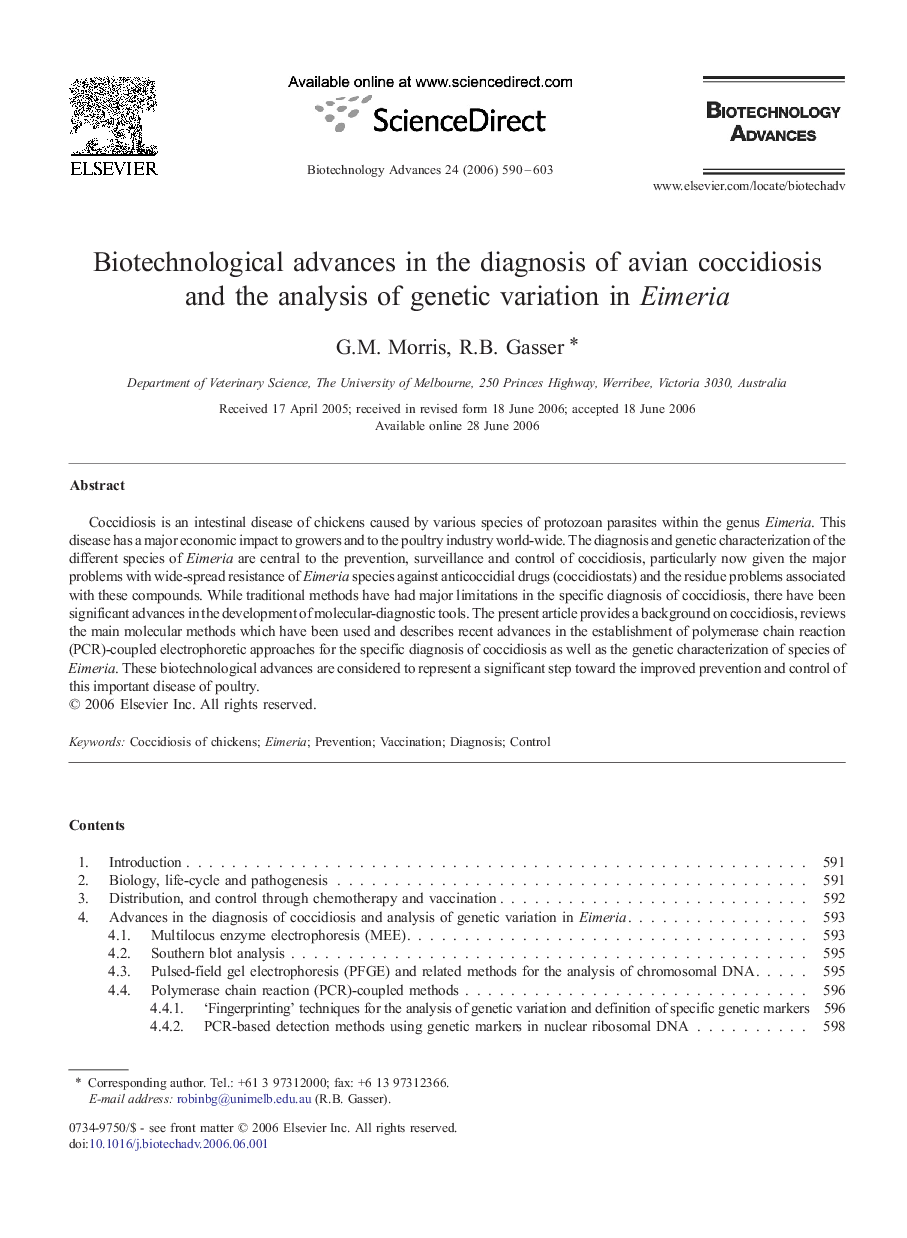| Article ID | Journal | Published Year | Pages | File Type |
|---|---|---|---|---|
| 14853 | Biotechnology Advances | 2006 | 14 Pages |
Coccidiosis is an intestinal disease of chickens caused by various species of protozoan parasites within the genus Eimeria. This disease has a major economic impact to growers and to the poultry industry world-wide. The diagnosis and genetic characterization of the different species of Eimeria are central to the prevention, surveillance and control of coccidiosis, particularly now given the major problems with wide-spread resistance of Eimeria species against anticoccidial drugs (coccidiostats) and the residue problems associated with these compounds. While traditional methods have had major limitations in the specific diagnosis of coccidiosis, there have been significant advances in the development of molecular-diagnostic tools. The present article provides a background on coccidiosis, reviews the main molecular methods which have been used and describes recent advances in the establishment of polymerase chain reaction (PCR)-coupled electrophoretic approaches for the specific diagnosis of coccidiosis as well as the genetic characterization of species of Eimeria. These biotechnological advances are considered to represent a significant step toward the improved prevention and control of this important disease of poultry.
